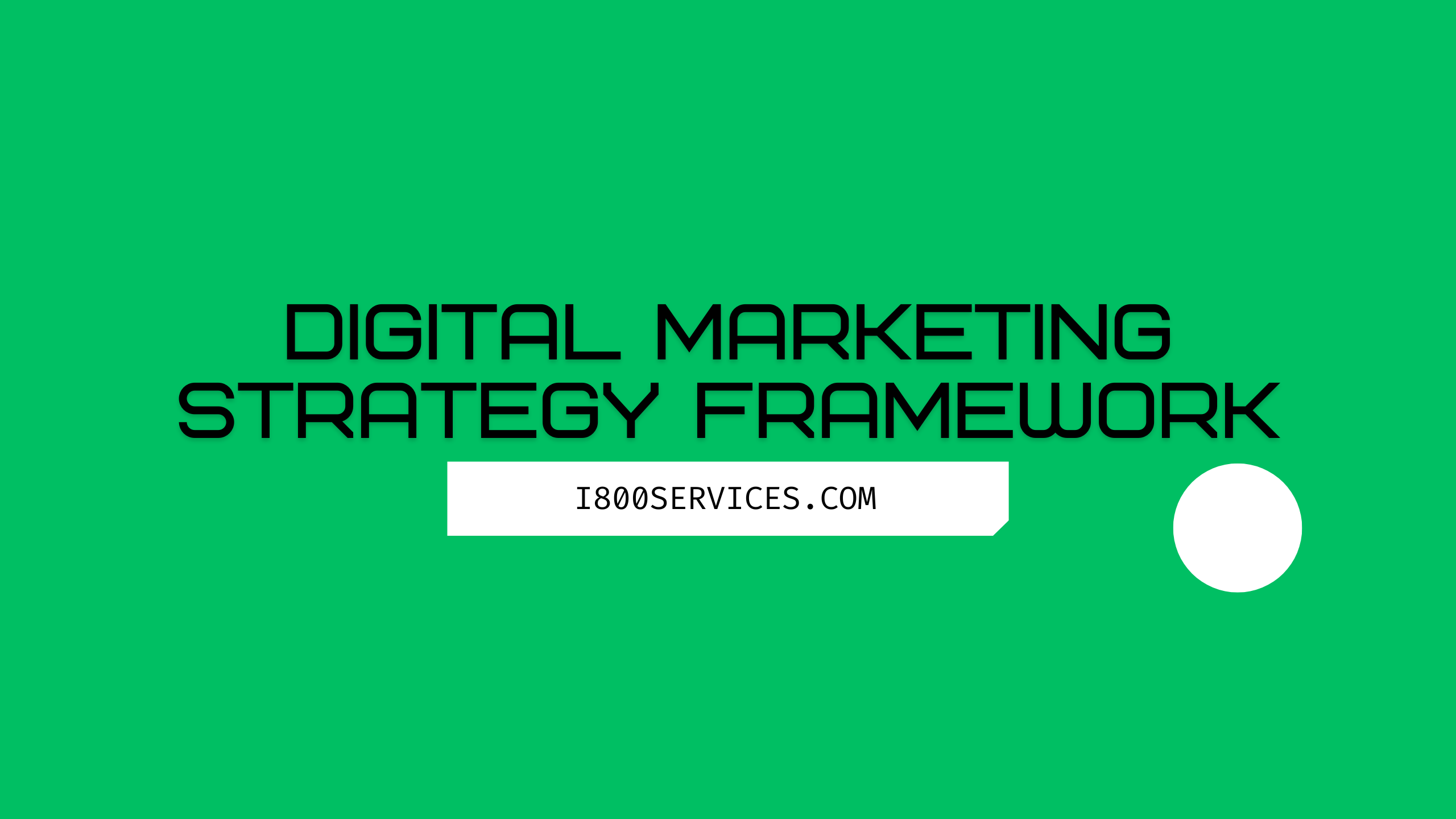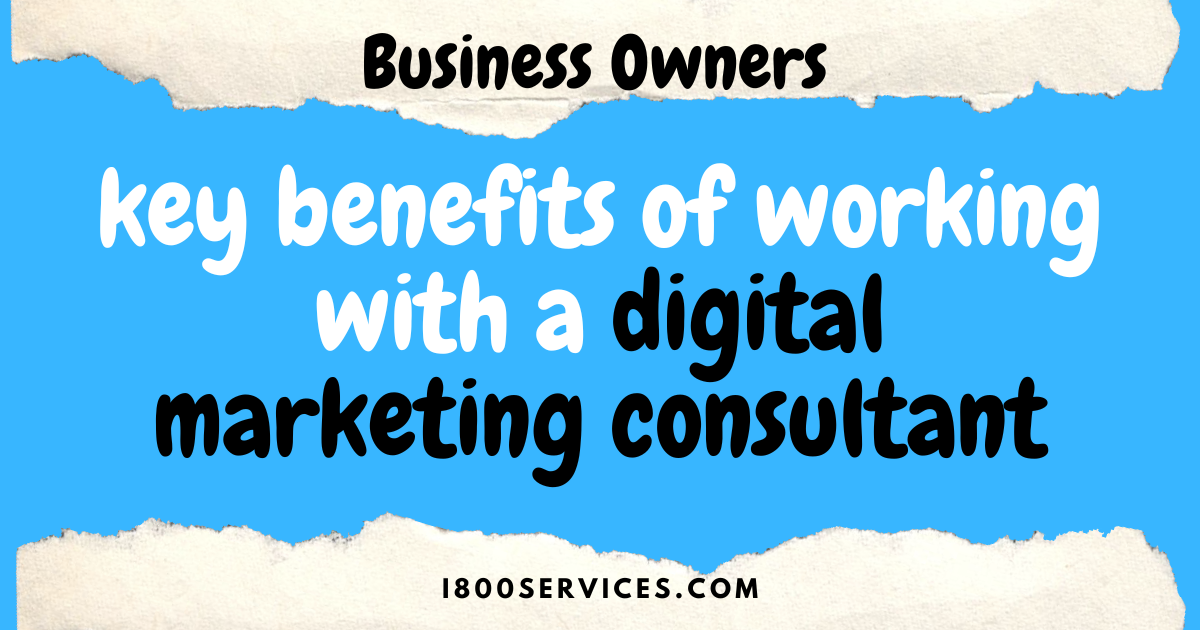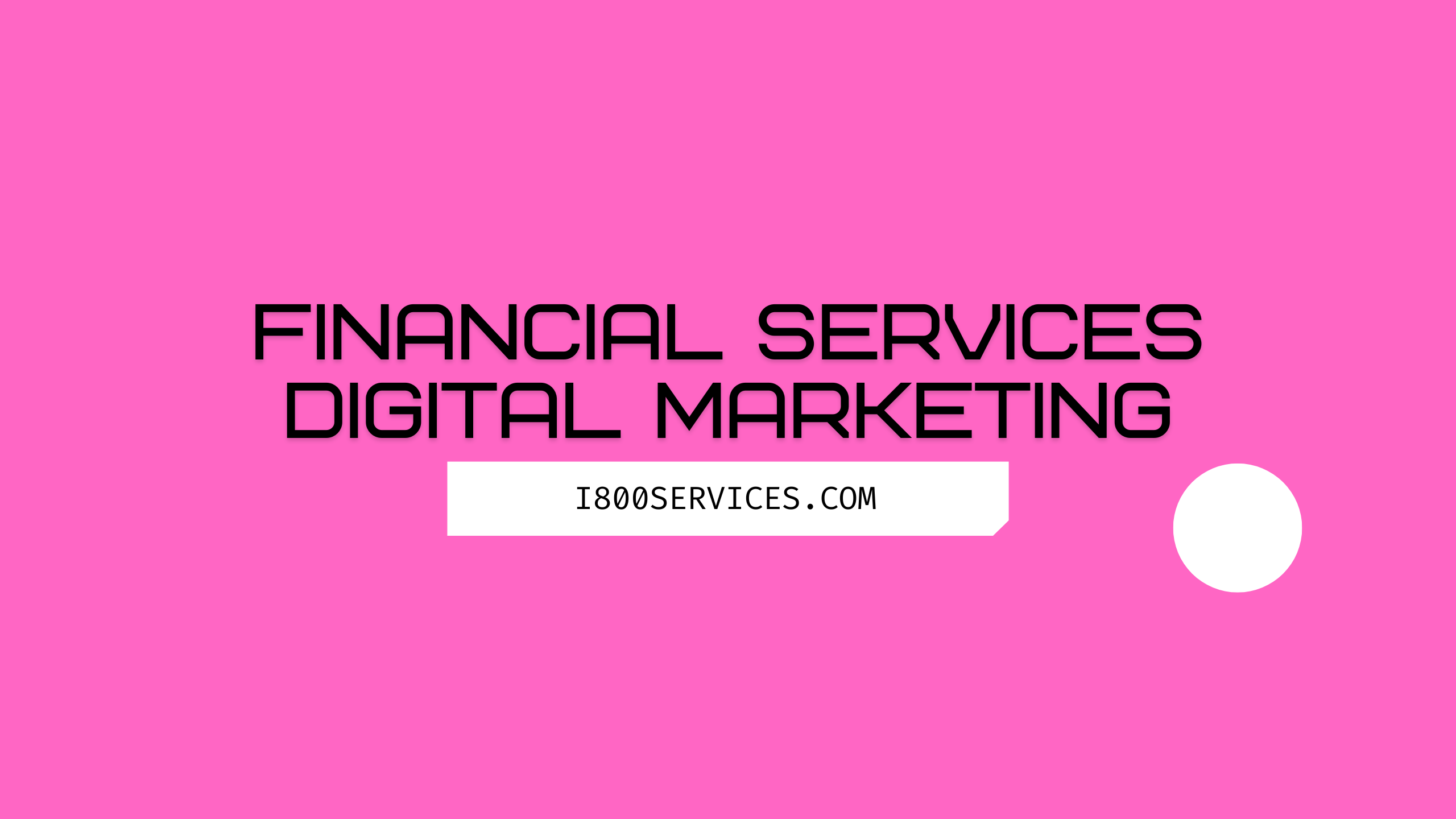Digital Marketing Strategy Framework
A digital marketing strategy framework is a comprehensive plan that outlines the various tactics and channels you will use to reach your target audience, build brand awareness, and drive conversions online.
This framework takes into account factors such as your business goals, budget, target audience, and competitive landscape to develop a customized approach that meets your unique needs.
With a well-crafted digital marketing strategy framework in place, you can ensure that all of your online marketing efforts are aligned and working towards a common goal, maximizing your ROI and helping you achieve long-term success in the digital space.
In today’s digital age, digital marketing has become an essential aspect of any successful business strategy. Digital marketing includes a range of services designed to promote a business or brand through online channels.
With the vast number of people using the internet to search for products and services, digital marketing has become a powerful tool for businesses to reach their target audience and increase their online visibility.

The most common digital marketing strategy framework and services include:
- Search engine optimization (SEO)
- Pay-per-click advertising (PPC)
- Social media marketing
- Email marketing
- Content marketing
- Affiliate marketing
- Influencer marketing
- Video marketing
Digital Marketing:
- Search engine optimization (SEO): Optimizing websites to rank higher in search engine results pages (SERPs)
- Pay-per-click advertising (PPC): Placing ads on search engine results in pages or social media platforms and paying each time a user clicks on the ad.
- Social media marketing: Utilizing social media platforms to connect with customers and promote a business.
- Email marketing: Sending promotional messages or newsletters to customers’ email addresses.
- Content marketing: Creating and distributing valuable and relevant content to attract and retain a target audience.
Branding:
- Logo design: Designing a visual representation of a brand.
- Brand messaging: Developing a unique voice and tone to communicate a brand’s values and mission.
- Brand guidelines: Establish guidelines for how a brand should be visually represented across all marketing channels.
Advertising:
- Display advertising: Placing banner ads on websites to drive traffic to a business’s website.
- Video marketing: Creating video content to promote a product or service.
- Native advertising: Promoting a product or service through sponsored content on a publisher’s website.
By utilizing these services, businesses can effectively reach their target audience and increase their online presence. Whether it’s through digital marketing, branding, or advertising, each service plays an important role in building a successful business strategy.
Who needs digital marketing?
Digital marketing is essential for businesses of all sizes and industries that want to remain competitive in today’s digital age. Any company that wants to reach its target audience and promote its products or services online can benefit from digital marketing.
Small businesses can especially benefit from digital marketing as it allows them to compete with larger corporations on a level playing field. With a well-crafted digital marketing strategy, small businesses can reach their target audience and build brand awareness without breaking the bank.
Entrepreneurs and startups can also greatly benefit from digital marketing. It allows them to reach a wider audience, build brand awareness and credibility, and establish themselves as a reputable brand in their industry.
E-commerce businesses, in particular, rely heavily on digital marketing as it drives traffic to their online stores, helps convert visitors into customers, and increases sales.
In today’s digital age, even traditional brick-and-mortar businesses can benefit from digital marketing. It allows them to connect with customers online, provide valuable information, and build relationships with their target audience.
In summary, any business that wants to remain competitive in today’s market and reach its target audience should invest in digital marketing.
Here’s an example of a successful digital marketing campaign for a healthcare business:
Step 1: Identify the Target Audience and Goals
The first step in any successful digital marketing campaign is to identify the target audience and set specific, measurable goals. For this healthcare business, the target audience is men and women between the ages of 25-60 who are interested in health and wellness. The goal of the campaign is to increase website traffic and generate leads for the business.
Step 2: Develop a Content Strategy
The next step is to develop a content strategy that will resonate with the target audience. In this case, the content strategy includes blog posts, social media posts, and email marketing campaigns focused on topics such as healthy living, preventative care, and wellness tips.
Step 3: Optimize the Website for Search Engines
To increase website traffic, the healthcare business needs to optimize its website for search engines. This includes conducting keyword research, optimizing on-page content, and building high-quality backlinks to the site.
Step 4: Run Google Ads Campaigns
To generate leads for the business, the healthcare business should also run Google Ads campaigns. The ads should target keywords related to the business, such as “healthcare services” or “preventative care,” and should include a call-to-action that encourages users to schedule an appointment or contact the business for more information.
Step 5: Utilize Social Media
Social media is an important component of any successful digital marketing campaign. The healthcare business should create and maintain active social media accounts on platforms such as Facebook, Instagram, and Twitter. The content posted on social media should align with the content strategy and encourage engagement from followers.
Step 6: Track Metrics and Optimize
To measure the success of the digital marketing campaign, the healthcare business should track key metrics such as website traffic, leads generated, and social media engagement. Based on these metrics, the business can optimize the campaign by adjusting the content strategy, ad targeting, and social media approach.
Example Metrics:
- Website traffic: 10,000 visits per month
- Google Ads click-through rate (CTR): 5%
- Google Ads conversion rate: 10%
- Social media engagement rate: 3%
With a successful digital marketing campaign, the healthcare business can expect to see an increase in website traffic, leads generated, and brand awareness. By continuously tracking metrics and optimizing the campaign, the business can maintain a strong online presence and attract new patients.
SEO Framework for a Makeup Artist
In this case study, we will explore the steps to create an SEO framework for a makeup artist. The purpose of this framework is to help the makeup artist rank higher in search engine results and attract more potential clients.
Step 1: Identify Target Keywords The first step in creating an SEO framework is to identify the target keywords that potential clients might use to search for a makeup artist. Some examples of these keywords could be “makeup artist,” “wedding makeup,” “prom makeup,” or “bridal makeup.” These keywords will form the foundation of your SEO strategy, as they will be the terms you want to rank for.
Step 2: Optimize On-page Elements Once you have identified your target keywords, it’s time to optimize your website’s on-page elements. This includes your page titles, meta descriptions, header tags, and content. Ensure that your target keywords are included in these elements, but avoid keyword stuffing. Make sure the content is high-quality, relevant, and engaging to keep visitors on your site for longer.
Step 3: Build High-Quality Backlinks Backlinks are linked from other websites to your site, and they play a critical role in improving your search engine rankings. Aim to acquire backlinks from high-authority websites related to your niche. One way to achieve this is by creating valuable content that other websites will want to link to. You can also engage in guest blogging to increase your visibility and earn backlinks.
Step 4: Optimize Your Google My Business Listing Google My Business is a free tool that helps businesses manage their online presence. By creating and optimizing your Google My Business listing, you can improve your visibility in Google Maps and local search results. Make sure that your listing is up-to-date, including your contact information, hours of operation, and customer reviews.
Step 5: Monitor Your Progress and Adjust Your Strategy Finally, it’s important to monitor your progress and adjust your strategy accordingly. Track your website’s rankings for your target keywords, monitor your website traffic, and track your conversions. Use this information to make informed decisions about what’s working and what’s not, and adjust your strategy accordingly.
Conclusion: Creating an SEO framework for a makeup artist can be an effective way to attract more potential clients and improve your online visibility. By following these steps and implementing a well-thought-out strategy, you can improve your search engine rankings, drive more traffic to your website, and ultimately grow your business.










